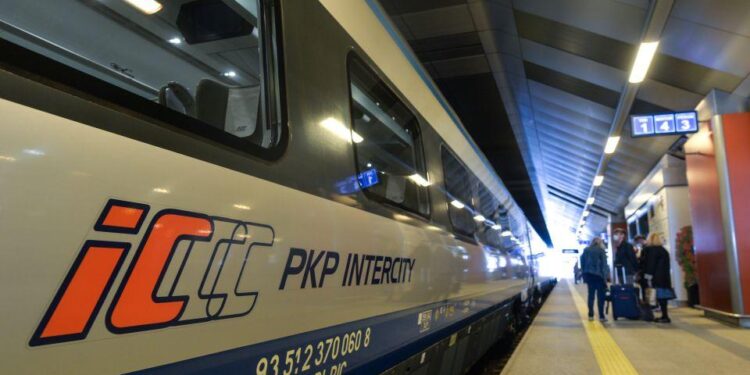A significant step forward has been taken to enhance connectivity between Poland and Lithuania, as officials have reached an agreement to improve the Warsaw-Vilnius rail link. The deal, announced this week, aims to upgrade infrastructure and streamline cross-border services, promising faster and more efficient travel between the two capitals. This development marks a vital milestone in strengthening regional cooperation and boosting economic ties within the Baltic and Central European corridor.
Agreement Paves Way for Enhanced Rail Connectivity Between Warsaw and Vilnius
A landmark cooperation agreement has been signed between Polish and Lithuanian rail authorities to significantly boost the rail corridor connecting Warsaw and Vilnius. The partnership focuses on modernizing existing infrastructure, enhancing service frequency, and introducing faster, more comfortable trains. This initiative aims to stimulate economic ties and ease passenger and freight movement between the two capitals, further integrating the Baltic region with Central Europe.
Key components of the agreement include:
- Track upgrades to support higher speeds and increased capacity
- Development of new rolling stock designed to meet modern safety and comfort standards
- Improved scheduling for reduced travel times and better connectivity with international services
- Cross-border cooperation on operational and technical standards to facilitate seamless journeys
| Aspect | Current Status | Post-Agreement Target |
|---|---|---|
| Travel Time | 6h 45m | 4h 30m |
| Train Frequency | 3 daily | 6 daily |
| Track Quality | Mixed standard | High-speed compatible |
Key Infrastructure Upgrades and Funding Plans Announced to Boost Travel Efficiency
The latest agreement between Poland and Lithuania has paved the way for significant enhancements along the Warsaw – Vilnius rail corridor, promising to transform regional travel dynamics. Among the planned infrastructure upgrades are track modernization, electrification improvements, and state-of-the-art signaling systems designed to reduce travel time and increase train frequency. These measures are expected to elevate the corridor’s capacity, supporting economic growth and fostering stronger cross-border connectivity.
Key elements of the funding and upgrade plan include:
- Investment of over ‚ā¨500 million secured through EU cohesion funds and national budgets
- Deployment of advanced digital traffic management tools
- Station refurbishments focusing on accessibility and passenger comfort
- Enhanced freight logistics facilities to boost cargo movement efficiency
| Upgrade Area | Expected Completion | Impact |
|---|---|---|
| Track Modernization | 2026 | Travel time cut by 20% |
| Signaling System | 2025 | Increased operational safety |
| Station Renovation | 2027 | Improved passenger experience |
Recommendations Aim to Streamline Cross-Border Operations and Foster Regional Economic Growth
In a bid to enhance the efficiency of cross-border rail services, experts and stakeholders have outlined a series of practical measures designed to reduce administrative barriers and harmonize operational standards between Poland and Lithuania. Among these proposals are the implementation of unified customs procedures, the adoption of interoperable signaling systems, and improved coordination in scheduling, all aimed at minimizing delays and ensuring a seamless flow of goods and passengers along the Warsaw – Vilnius corridor.
Key initiatives include:
- Standardizing freight documentation to accelerate border clearance
- Introducing joint training programs for railway personnel
- Deploying advanced digital platforms for real-time cargo tracking
- Enhancing infrastructure connectivity through synchronized maintenance schedules
| Recommendation | Expected Impact | Timeline |
|---|---|---|
| Unified Border Controls | Reduced wait times by 40% | Q4 2024 |
| Interoperable Signaling | Improved safety and speed | Q2 2025 |
| Digital Cargo Tracking | Enhanced transparency | Q1 2025 |
Closing Remarks
The agreement to enhance the Warsaw-Vilnius rail connection marks a significant step forward in strengthening regional transportation links between Poland and Lithuania. With improved infrastructure and streamlined services on the horizon, both countries are set to benefit from increased economic cooperation and easier cross-border travel. As implementation progresses, stakeholders and passengers alike will be watching closely to see how these developments translate into tangible improvements on the ground.
















